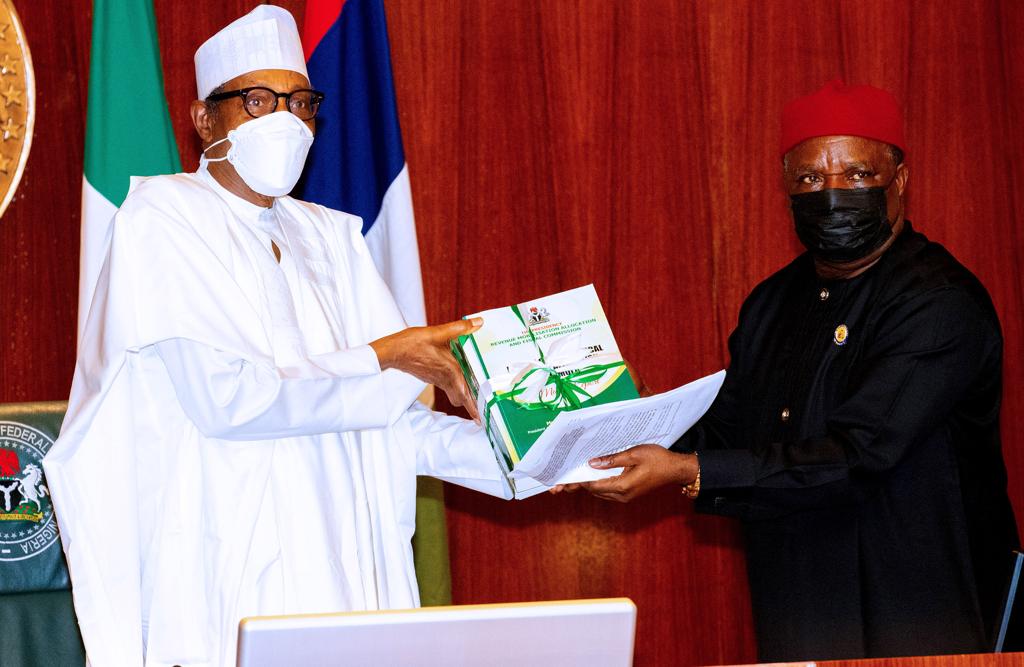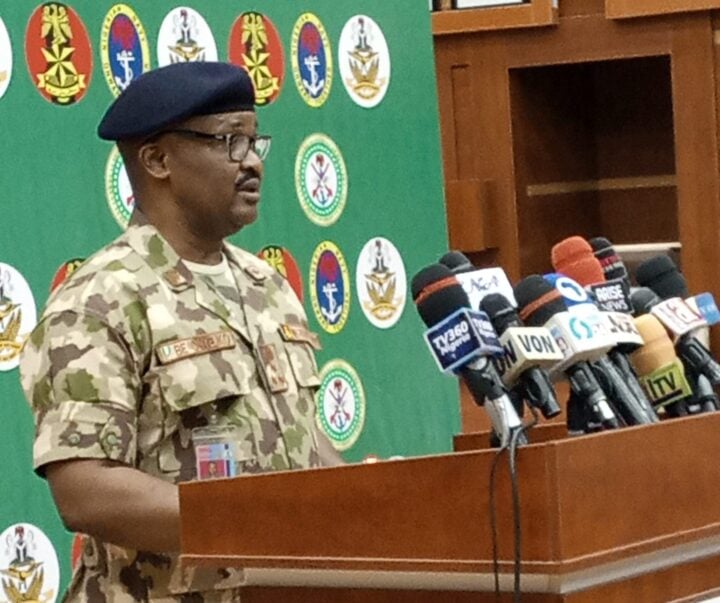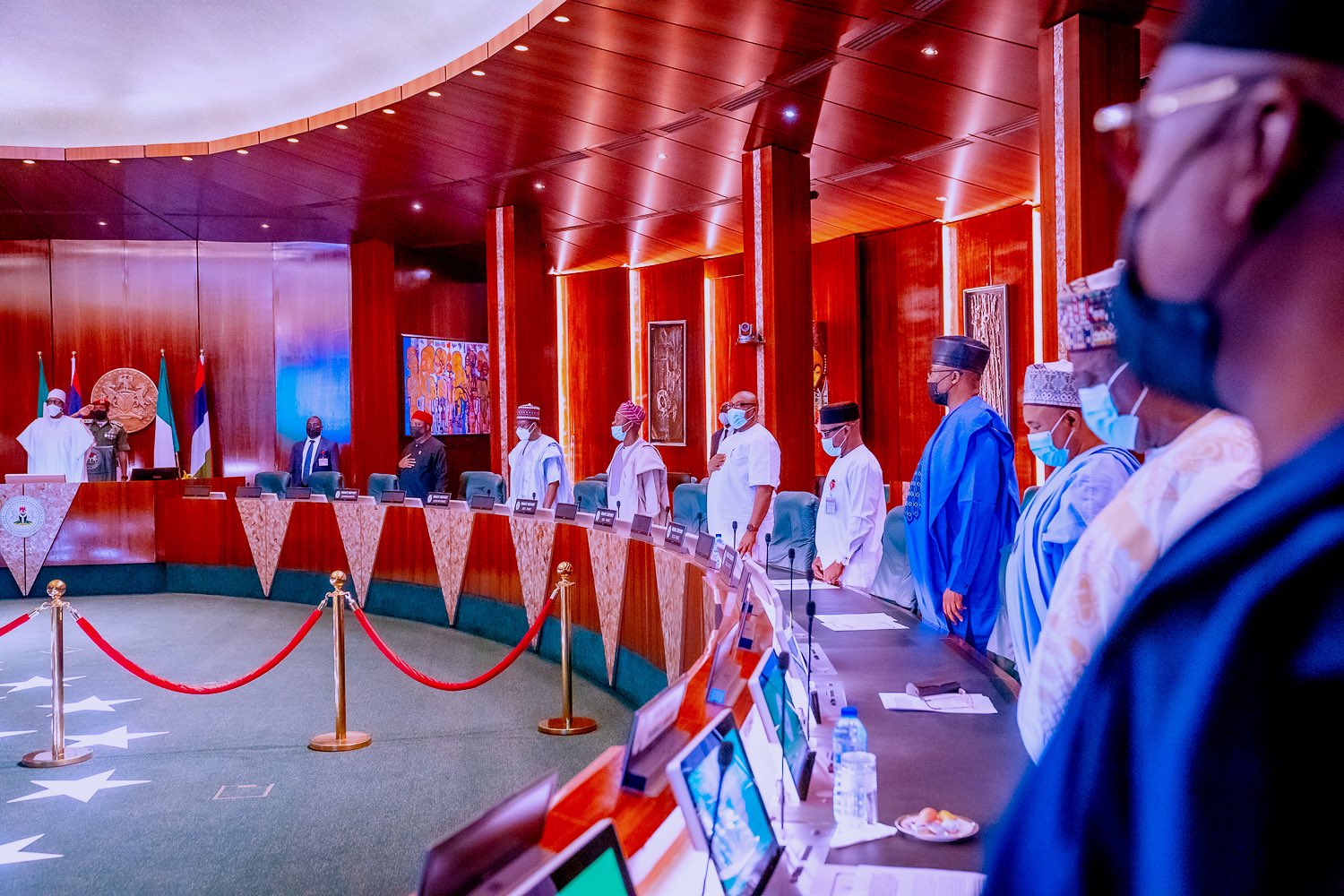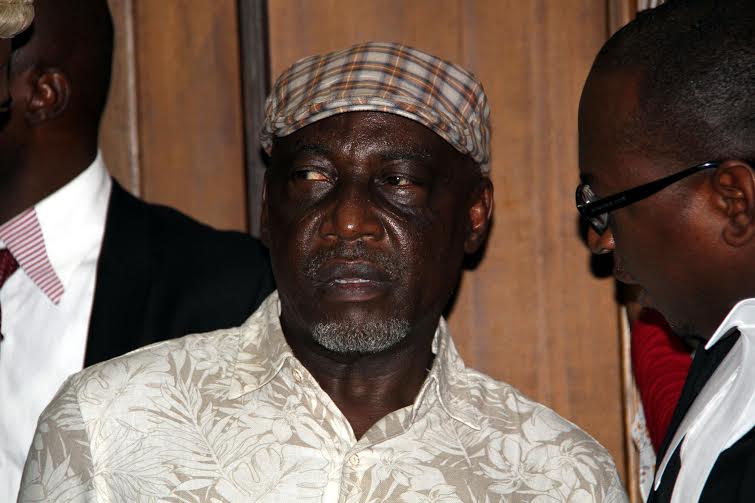President Muhammadu Buhari has received a report on the review of the vertical revenue allocation formula from the Revenue Mobilisation, Allocation and Fiscal Commission (RMAFC).
The report proposes a sharing formula of 45.17 percent for the federal government, 29.79 percent for state governments and 21.04 percent for the local governments.
Under the current sharing arrangement, the federal government takes 52.68 percent of the revenue shared, states get 26.72 percent while local governments get 20.60 percent.
The development is coming on the heels of the review of the current revenue sharing formula by RMAFC, which commenced in June, last year.
Advertisement
According to a statement by Femi Adesina, presidential spokesperson on Thursday, Buhari said he will await the final outcome of the constitutional review process before presenting the report to the national assembly.
‘‘Ordinarily, I would have gone ahead to table this report before the National Assembly as a Bill for enactment,” Buhari said.
‘‘However, since the review of the vertical revenue allocation formula is a function of the roles and responsibilities of the different tiers of government, I will await the final outcome of the constitutional review process, especially as some of the proposed amendments would have a bearing on the recommendations contained herein.”
Advertisement
Speaking further, Buhari outlined some of the recommendations in the report.
‘‘Establishing local government as a tier of government and the associated abrogation of the state/local government account; moving airports; fingerprints, identification and criminal records from the exclusive legislative list to the concurrent legislative list, empowering the RMAFC to enforce compliance with remittance of accruals into and disbursement of revenue from the Federation Account as well as streamlining the procedure for reviewing the revenue allocation formula.’’
The president assured members of the commission that the federal government would immediately subject the report to its internal review and approval processes, while awaiting finalisation of the efforts by the national assembly.
According to the president, this strategy, rather than issuing an Executive Modification order, as was done in 1992, is more in line with entrenching our democratic tenets.
Advertisement
“I am aware that the present revenue allocation formula has not been reviewed since the last exercise carried out in 1992,” he said.
‘‘Considering the changing dynamics of our political-economy, such as Privatisation, Deregulation, funding arrangement of Primary Education, Primary Health Care and the growing clamour for decentralisation among others; it is necessary that we take another look at our Revenue Sharing Formula, especially the vertical aspects that relate to the tiers of government.
‘‘This becomes more compelling as we need to reduce our infrastructural deficit, make more resources available for tackling insecurity, confront climate change and its associated global warming and make life more meaningful for our rapid growing population.’’
According to him, equitable distribution has always been observed in the sharing of national resources.
Advertisement
“‘I want to let you all know that I have keenly followed most of the discussions held in the geo-political consultative process and one thing that struck me clearly was the agreement that a review of our vertical revenue formula cannot and should not be an emotional or sentimental discussion and it cannot be done arbitrarily,” Buhari said.
‘‘All over the world, revenue and resource allocation have always been a function of the level of responsibilities attached to the different components or tiers of government.
Advertisement
‘‘I am, therefore, happy to note that the discussions were held along these lines and rested squarely on roles and responsibilities as spelt out in the 1999 Constitution (as amended).
‘‘However, I also note that in reaching the final decisions at most of these engagements, not much emphasis was placed on the fact that the Second Schedule of the Nigerian constitution contains Sixty Eight (68) items on the Exclusive Legislative List and the remaining Thirty (30) items on the Concurrent List requiring both the Federal and State Government to address.”
Advertisement
Buhari, therefore, said for the nation to have a lasting review of the present revenue allocation formula, there must first be an agreement on the responsibilities to be carried out by all the tiers of Government.
He noted that the proposal seeks a 3.33 percent reduction in the current federal government allocation and on the other hand an increase of 3.07 percent and 4.4 percent for the states and local governments.
Advertisement
He added that with regards special funds, the report by the RMAFC proposed an increase of 2 percent for the federal capital territory (FCT) and a decrease of 38 percent for development of natural resources.
The president said the FG also made its input into the process of reviewing the vertical revenue allocation formula.
According to him, this was based on existing constitutional provisions for roles and responsibilities for the different tiers of government.
“We must note the increasing visibility in Sub-national level responsibilities due to weaknesses at that level, for example: Primary Health Care; Basic Primary Education; Levels of insecurity, and; Increased remittances to State and Local Governments through the Value Added Tax sharing formula, where the Federal Government has only 15% and the States and Local Government share 50% and 35% respectively,’’ he added.
Speaking, Elias Mbam, chairman of RMAFC, said the proposed vertical revenue allocation formula advised 45.17 percent for the FG, 29.79 percent for state governments and 21.04 per cent for the local governments.
Under special funds, he said, the report by the commission recommended 1.0 percent for ecology, 0.5 percent for stabilisation, 1.3 percent for development of natural resources and 1.2 percent for the FCT.
In arriving at the new vertical revenue allocation formula, Mbam said there was wide consultation with major stakeholders, public hearing in all the geo-political zones, administering of questionnaires and studying of some other federations with similar fiscal arrangements like Nigeria to draw useful lessons from their experiences.
According to the RMAFC chairman, the commission also visited all the 36 states and the FCT, the 774 local government areas to sensitize and obtain inputs from stakeholders.
He added that literature reviews were conducted on revenue allocation formula in Nigeria dating back to the pre-independence period.
He added the commission received memoranda from the public sectors, individuals and private institutions across the country.
Mbam noted that since the last review was conducted in 1992, the political structure of the country has changed with the creation of six additional states in 1996, which brought the number of states to 36.
Correspondingly, he said, the number of local governments councils also increased from 589 to 774.






